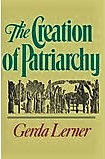 Ellie VerGowe is currently serving as Ministerial Resident for Community Outreach at First Covenant Church on Capitol Hill in Seattle. Ellie enjoys dancing, being outside and reading a good book on a rainy day with a friend and a cup of tea.
Ellie VerGowe is currently serving as Ministerial Resident for Community Outreach at First Covenant Church on Capitol Hill in Seattle. Ellie enjoys dancing, being outside and reading a good book on a rainy day with a friend and a cup of tea.
I recently read the story of the woman that Jesus meets at the well in John 4. Jesus is traveling and finally sits down at a well in Samaria in the heat of the day. As he is sitting there, a woman comes to the well to draw water. Her story comes out a bit as Jesus talks with her. She is at the well in the hottest part of the day because of her marital situation. We don’t know the whole story, but she has been through a lot. Maybe other women make fun of her when she draws water in cooler parts of the day and she has decided to go to the well alone.
 It is all very scandalous really…she is a ridiculed woman and left out of her community. She, a Samaritan of not “pure” bloodline speaks with a Jewish rabbi alone. And Jesus and this woman converse, she gives him water and he gifts her with the knowledge of his gift of grace and life…of living water.
It is all very scandalous really…she is a ridiculed woman and left out of her community. She, a Samaritan of not “pure” bloodline speaks with a Jewish rabbi alone. And Jesus and this woman converse, she gives him water and he gifts her with the knowledge of his gift of grace and life…of living water.
Jesus explicitly tells her, this scandalous woman, that HE is the one that she and everyone else had been waiting for…the Christ, the Messiah. This woman sees the truth and in her joy runs back to her community to preach the gospel. But then John tells us that she says this in verse 29: “Come, see a man who told me everything I ever did. Could this be the Messiah?”
What? Didn’t Jesus JUST tell her that he was the Messiah? While I don’t know how all the ways internalized patriarchy manifested itself in this ancient context, this woman’s response was a word of challenge for me when I read it most recently. This woman preaches with a question, though she knows the answer full well, and from the mouth of God, no less. I have noticed this pattern within myself and in many female colleagues. When I enter meetings, when I preach, when I speak to my colleagues, I speak with an air of apology and question. I say, “I don’t know if this would work, but…” and “I am still learning, but what if we…” and “I think…” and “I’m sorry…” while most of my male colleagues state their opinions and thoughts with an air of confidence. In their speech there are few questions and little to no apologies.
While I believe that questions and apologies aren’t bad and can sometimes even welcome others into conversation more, many of us women have been socialized to speak without confidence and with apologizing for the space that we take up in the world…as if the world wasn’t desperate for the voices of women preaching the gospel (whether it knows it or not!). The Samaritan woman preached the gospel with questions but God still ushered people to faith through her words. The gospel is still preached in our questions and apologies and fear…but my sisters…we know the truth. We’ve been gifted. We’ve been called. Let us, we who preach while being women (a scandal to so many!), preach without questioning our place to do so and tell the
truth without apology.



The Creation of Patriarchy
Filed under: Book & Commentary, Testimonies and Stories
Dru McLeland graduated with a Master of Divinity degree from Northern Theological Seminary in June and is currently seeking God’s next place of ministry call in the ECC. In the meantime, she and her family are enjoying their new Cavachon puppy, Zoë Ruby Regina.
Recently, I had a conversation with a young woman who is a chaplain in training about women in ministry and I mentioned the ECC’s Commission on Biblical Gender Equality. She asked, “Is there gender equality in the Bible? Isn’t the Bible patriarchal?” I answered, “Well, yes, especially in the Old Testament.” I started asking, why? I don’t see patriarchy in the creation of Adam and Eve. Both are created in the image of God. God blessed THEM, and told THEM to “fill the earth and subdue it; and have dominion…over every living thing that moves upon the earth. God did not give a command that society has to be patriarchal. I wonder is patriarchy God’s design or is it something humans created?
Several years ago, I read All God’s People (here). In that book, Jay Phelan’s brief history of hierarchal development was my first introduction to the idea that patriarchy may not be God’s creation, but I wanted to know more. Since I had thousands of pages to read for seminary classes, I set aside my question but occasionally returned to it and asked God to show me more. The Teacher did not forget my question. My final class in seminary, Women of the Old Testament, addressed it. One of our texts was The Creation of Patriarchy, (here)by Gerda Lerner (New York: Oxford University Press, 1986.) the first in a two-volume work.
Lerner, who died in 2013, had an unusual childhood in the early 20th century that included a Bohemian mother, escaping the Nazi’s, and targeting by McCarthyism. She made the study of African American and women’s history her life’s work. For a brief biography of Lerner, click here.
Her book is an attempt “to trace, by means of historical evidence, the development of the leading ideas, symbols, and metaphors by which patriarchal gender relations were incorporated into Western civilization” (p. 10). As one who is newly conscious of the role of patriarchy in Western society and witness to its creep into the Church, but not a historian, I found her book a great place to start and a springboard for further investigation and study. She includes anthropological evidence of societies that may have been egalitarian and others that may have been matriarchal to show that not all ancient societies were patriarchal. She challenges the tradition of patriarchy which she asserts has been “mystified… making it ahistoric, eternal, invisible, and unchanging” (p. 37). This may seem a little over the top to some, but I think it challenges us to think about our views of patriarchy and how it effects our lives as well as those around us.
One of the main ways Lerner’s writing challenged me was the connection she made between the oppression of women when they are seen as objects and how this paved the way for slavery of all kinds. Women came to be seen as a commodity, as belonging to a man or household, with their status established because of their ability or lack of ability to produce offspring. The strength of the natural urges of a mother to protect the life of a baby set her apart from men. Especially in war, this vulnerability made women more easily subdued and subjected to slavery by conquerors. Lerner hypothesizes that the enslavement of women was a precursor to slavery in general. Women came to be seen as less than human, “other” and treated as an object or commodity. Lest we think this is history only, we have only to look at the numbers of people who are victims of human trafficking because someone is willing to pay for them as a sex object. (See the US Government 2016 report on human trafficking here; find your state here.)
Against the context of Lerner’s book, I see the Apostle Paul’s letter to the Ephesians as just as radical in our day as in his. Christ came to break down the divisions patriarchal systems create. He came to create a new humanity where all are one with new identity as members of the household of God, no matter what we are able contribute, but because we are human beings, created in God’s image.
Whether one agrees with Lerner about the creation of patriarchy or not, I believe there is a challenge for us as we look at others. I ask myself and invite you to ask yourself a couple of questions. When interacting with others, do I see them as objects or commodities in anyway? Do I remember I am united in Christ with other Christians when we interact?
I would like to continue this conversation. Where have you discovered that you might be seeing another as an object or “the other” rather than God’s created person? If you have read Lerner’s book, what do you think about it? Please leave a reply.
Report This Post